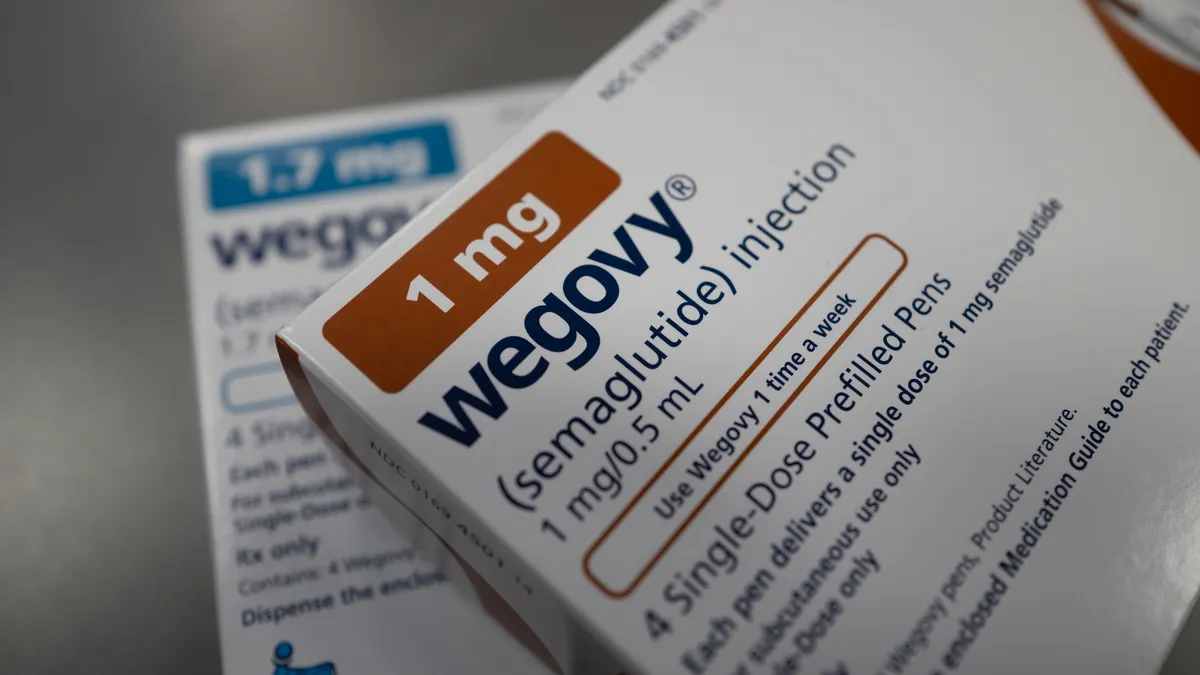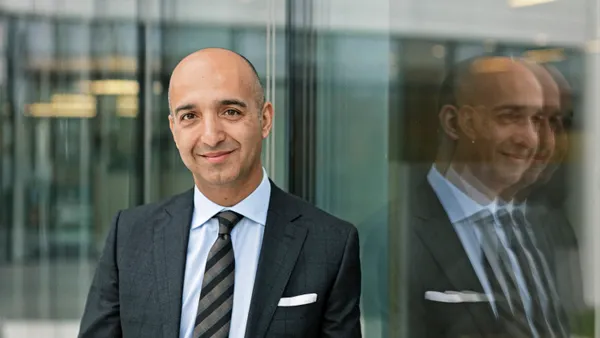Dive Brief:
- Novo Nordisk reined in expectations for full-year sales and profit amid expected price cuts and a disappointing third quarter for its obesity drug Wegovy.
- The Danish drugmaker now expects sales growth of 8% to 11% for the year after previously predicting revenue might expand by as much as 14%. Operating profit will likely grow between 4% and 7%, down from an estimate of as much as 10%, Novo said Wednesday, a shift executives attributed on a conference call to “intensifying competition and pricing pressure.”
- Sales of semaglutide, sold as Wegovy for obesity and Ozempic for diabetes, continued to rise in the third quarter and together brought in more than 51 billion Danish kroner, or about $7.9 billion. But analysts had been looking for more from Wegovy, and the combined total fell short of Eli Lilly’s rival Zepbound/Mounjaro drug, which became the world’s best-selling medicine in the third quarter with more than $10 billion in revenue.
Dive Insight:
The phenomenal success of GLP-1 drugs has brought a series of highs and lows for Novo Nordisk. As Ozempic became a household name, the company struggled to keep up with demand, a problem that also plagued Lilly. The shortages allowed cheaper, compounded versions to enter the market, and they continue to steal a significant share of prescriptions.
Both Novo and Lilly have undertaken a series of measures to fight the competition, suing compounders, offering cheaper versions of their brand-name products and vying to market GLP-1 drugs in pill versions, instead of injections. But while Lilly managed to beat Wall Street expectations in the third quarter, Novo is once again facing disgruntled investors.
The company’s largest shareholder is pushing to replace half the board at Novo, which has already switched CEOs and announced significant layoffs in recent months. Meanwhile, the company is engaged in an ugly fight with Pfizer over its bid to buy obesity drug maker Metsera.
And on top of all that, Novo is facing increasing pressure on its drug pricing. Like Lilly, the company has been negotiating with the White House over prices for its obesity medications and an announcement is reportedly expected shortly. Published reports indicate Wegovy’s could be as low as $149 a month for some people, compared with its list price of $1,349.
Novo also revealed during its earnings call that it’s accepted the U.S. government’s “maximum fair price” for Wegovy, Ozempic and Rybelsus under the Inflation Reduction Act. Novo didn’t reveal that price, which will go into effect in 2027, but said that if it had been introduced on Jan. 1 of this year, it would have had a “negative low single-digit impact” on global sales growth.
Still, company officials emphasized the market opportunity to access more of the 30 million people on Medicare with obesity. And despite the struggles, CEO Mike Doustdar told investors and analysts on a call that Novo sees significant growth ahead.
“I would not lie and say I like losing market share, but our job right now is to focus the company’s strategy around diabetes and obesity,” Doustdar said. “We see a huge expansion potential as we go forward.”














